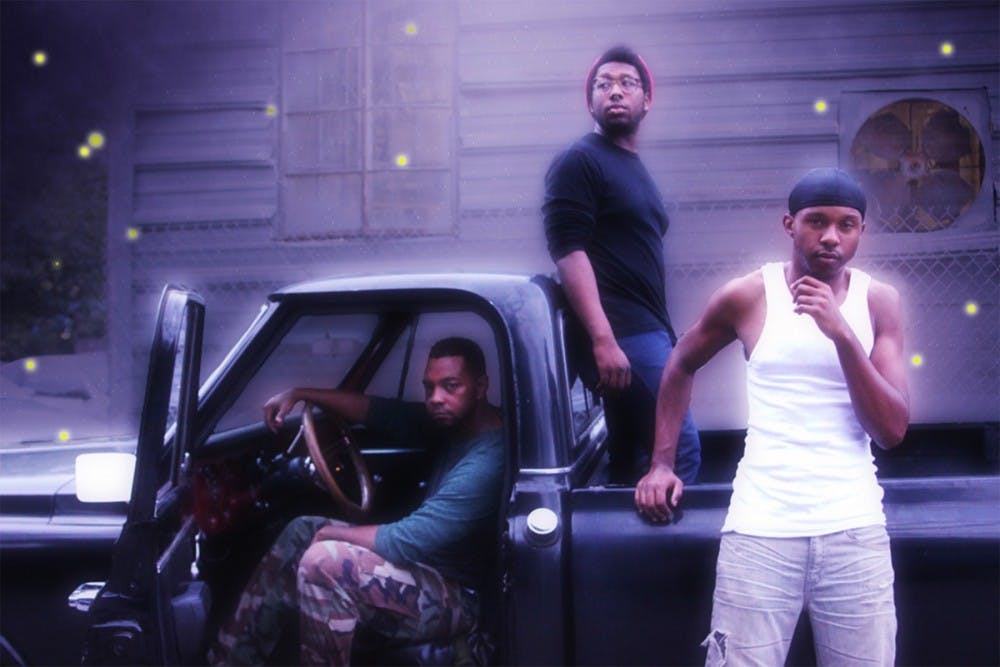Trustus Theater brings a fresh take to Columbia about what it means to leave your past behind and live your best life. “The Brothers Size” follows Oshoosi Size, recently released from prison, as he lives with his older brother Ogun and tries to bring meaning to his life and his relationships. Oshoosi struggles between the pressures of fulfilling his second chance or giving into his old ways through the temptations of his former prison-mate, Elegba.
“Ogun is trying the best that he can to set his brother on the right path because he cares about him — because he loves him,” Jabar Hankins, who plays Ogun, said. “And there’s that sort of push-and-pull of allowing him to be his own man."
Although this play is the second in a trilogy, you don't have to see the first one to understand and appreciate “The Brothers Size.” This performance is sequentially the second, but it was the first one written by playwright Tarell Alvin McCraney. Any references to the first play are made clear enough that a newcomer could easily follow along.
McCraney has taken great pains to ensure that his work is a truly unique experience. In most plays, the stage directions written on a script — such as a character's entrance — are solely for the actor’s eye, but here the actors announce them to the audience. McCraney draws in the audience by switching from well-crafted, beautiful language to more-rugged, raw language that balance each other out and represent different walks of life.
"The actors, in many instances, announce their stage directions directly to the audience," Hankins said. "So it’s inclusive of the audience in that there are parts where the actors sort of come out of character and they’re speaking directly to the audience, announcing what it is they’re going to do, which is very different than the way that most traditional plays are done."
Although this play is set in the “distant present” in San Pere, Louisiana, the characters are based on West African Yoruban gods and goddesses that help to explain African American culture, norms and linguistic differences. Their names are based on these gods, and their actions in the play reflect this as well. The gods represent the more elated version of the self.
While you may think that basing the play on mythology would remove the grounded, earthly aspect of the play, it does quite the opposite. According to director Chad Henderson, these gods reflect not only the distant past, but also present-day scenarios that can be found from ancient religion.
The elements of the play that seem rather distant or out-of-this-world can be explained through the characters stepping in and out of human identities and deity identities. In Hankin's perspective, he believes this contrast of language and identities allowed the playwright to analyze what these Yoruban gods would add to modern society and how they would interact with one another in today's world.
"The idea that within each of us lies a power that is strong, that elevates us, that takes us to a higher place, I think, is what I take from," Hankins said. "I can’t speak for him because I didn’t write it, but in my interpretation I think that he gets to the idea of the god being in each of us as humans."
While many of the play's elements speak specifically to an African American demographic, it does not solely target this specific audience.
"It’s a very human play, and I think that McCraney takes pains to make these people very ordinary," Hankins said. "They are regular, everyday people, and anybody in the audience can plug in someone they know, or even themselves, into one of these characters and see them reflected in the show, which is what I like about it. So it is very rooted and grounded in Black culture, but the themes and the topics that it explores are universal."
The contrast between the god within and the human without portrays life without all of its glory. McCraney did not write the play to romanticize life, but rather to show the human universal of how painful life can really be.
"These shows are very layered and rich," Henderson said. "They’re fun to dive into because there’s a surprise at every corner, and everything comes from something. These plays are theatrical experiences."

